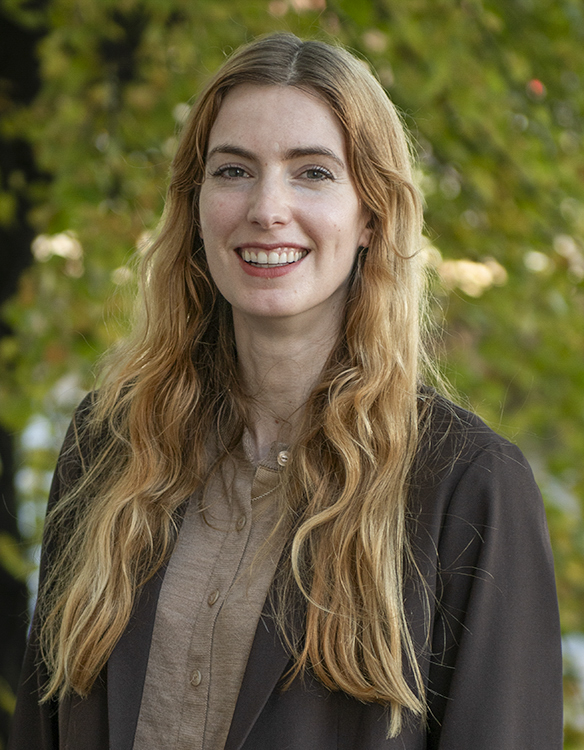The past is the...present? How interpretations of the past are shaping democracy in Europe

Disclaimer: Opinions expressed in this commentary are those of the author and do not necessarily represent the institutional position of International IDEA, its Board of Advisers or its Council of Member States.
June’s European Parliament elections boosted the representation and normalisation of radical right-wing parties, several of which have neofascist origins. The spectre of history loomed over the elections, especially as some candidates sought to alter – and sometimes manipulate – the narratives around key historical moments and periods, prompting important reflection on the role of historical memory in politics today.
Is it better to leave the past behind? Some experts posit just this, arguing that forgetting can avoid fomenting societal divisions and allow past grievances to retreat from national conversations.
What is historical memory?
We can think of historical memory as the ways in which communities build narratives about historical periods or events. This of course includes the way a population remembers past threats to democracy in their country – in the most severe cases, life under an authoritarian regime, a conflict, colonization or occupation by a foreign power, or other forms of national trauma. Memories can also be positive, including circumstances that lent stability to democratic institutions and practices – for example, social movements that played an important role in facilitating a country’s transition to democracy.
Of course, as new data or sources surface about a historical event, updates may be necessary. In other cases, only the lens through which people view and engage with their history evolves with the current zeitgeist or political landscape. Changes in the group or the nation’s self-conception can also make historical memory fluid, something that is constantly being socially re-constructed as part of the refashioning of an imagined community. For example, these dynamics could have been at play in some Baltic state governments’ decisions to remove Soviet-era monuments after the 2022 Russian invasion of Ukraine.
Because of the intimate ways in which social memory transmission occurs – based on biographical accounts related by family members, or messages from trusted religious leaders, among other modes of memory transmission - these stories can be foundational to personal belief systems and values.
Impacts on democracy in Europe
Historical memory is an important driver of politics globally. This can manifest in “trade-offs,” where the pursuit of legitimate policy objectives can result in complicated, often unintended impacts on civil liberties such as freedom of political expression. Earlier this summer, the Paris Administrative Court suspended a ban on a neo-fascist march, ruling that the ban infringed on the freedom to demonstrate.
Because historical memory is linked to values and identity, it is subjective, leaving it susceptible to political instrumentalisation or strategic manipulation. For example, in Albania, it is not unusual for public officials to seek to discredit political opponents with accusations of personal or family ties to the former Communist dictatorship. At its ugliest, historical memory can be weaponized by governments, who attempt to (re)shape the collective representation of the past via a tightly controlled information environment, undermining press freedom and freedom of expression.
Additionally, highly divergent views of a country’s history can contribute to identity cleavages or tensions between different communities. In Bosnia and Herzegovina, secessionist calls from the Republika Srpska leadership intensified following a UN resolution commemorating the Srebrenica massacre. Genocide denial persists among the country’s politicians, undermining the stability of democratic institutions and exacerbating divisions between the country’s ethnic groups.
At the same time, historical memory plays a critical role in ensuring access to justice for victims of past discrimination or rights abuses. Norway’s Truth and Reconciliation Commission found that the policy of forced assimilation of Sámi people and minorities resulted in losses of linguistic and cultural heritage of minority groups. The Commission recommended increased knowledge about these policies in schools and higher education. Spain’s 2022 Democratic Memory law also sought to improve access to justice by establishing a database for the identification of people buried in mass graves during the fascist regime of Francisco Franco.
Cultivating the past
As Nietzsche observed, history is “fruitful for the future” only when it is “dominated and directed by a higher force and does not itself dominate and direct.” It is incumbent on us to cultivate the past - an essential part of which involves staving off manipulation of historical memory for political purposes. This requires staying cognizant of the ways in which historical memory - as an agent driving present-day political decision-making - is susceptible to bias or distortions, to ensure that collective narratives maintain the integrity of lived experiences.
In this respect, attention to institutional capture can be a good place to start (since public media, museums and schools risk becoming the implements through which political actors seek to rewrite history). Another focus should lie in countering potential for manipulation of the past with new technologies. As the room for historical distortions grows, the window for achieving justice narrows.




